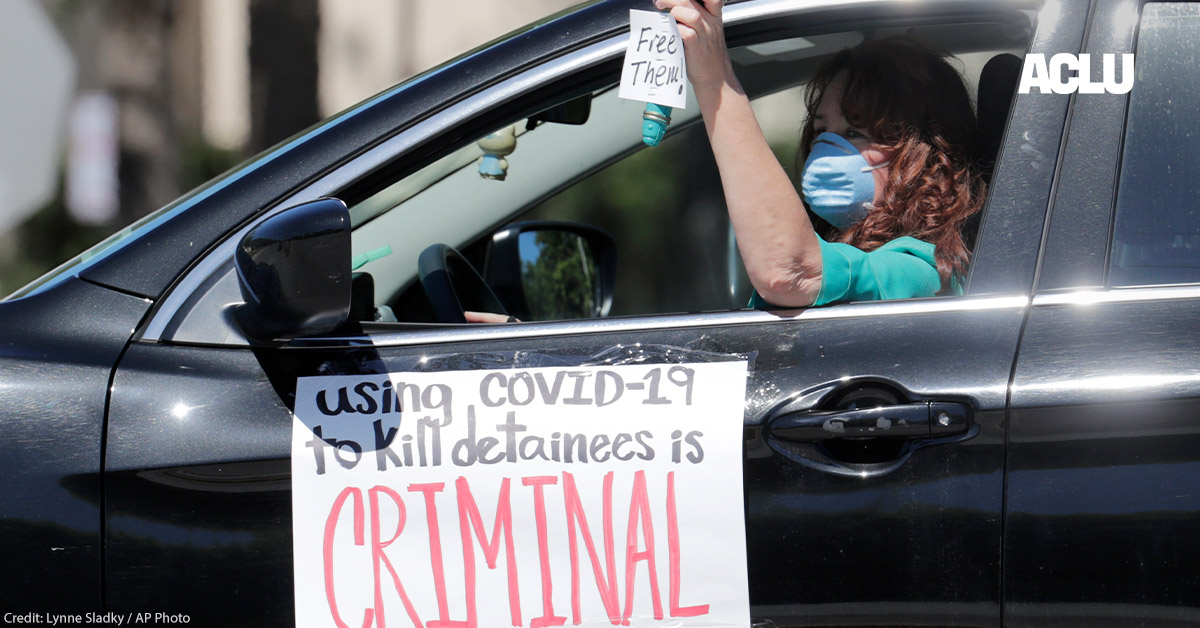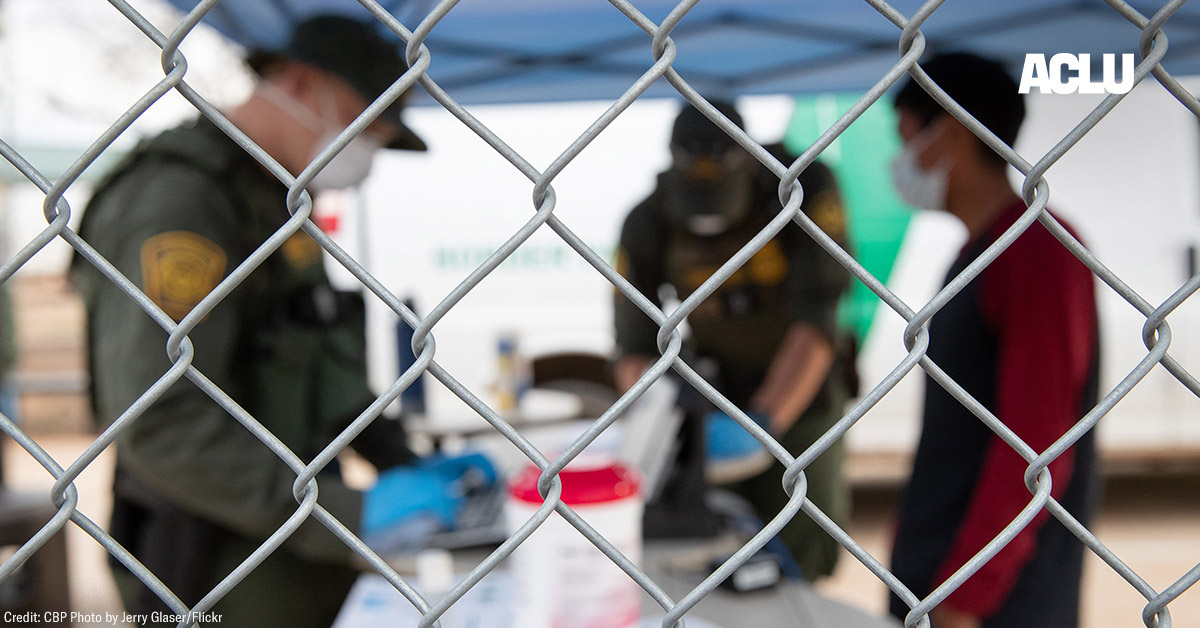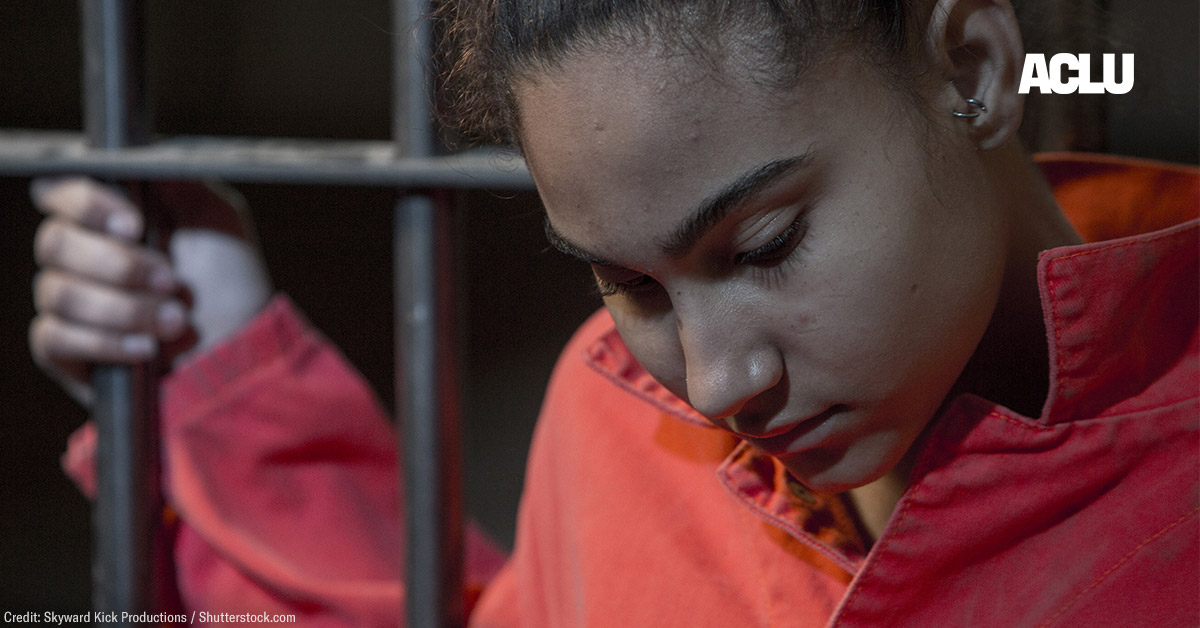By Eunice Cho, ACLU Senior Staff Attorney
Even before the COVID-19 pandemic, Immigration and Customs Enforcement’s (ICE) detention system was marked by its lack of transparency, accountability, and oversight. In recent months, things have grown worse, as COVID-19 has spread rampantly throughout the system. At a time when even closer scrutiny of the immigration detention system is needed, the usual channels of accountability and oversight have ended: ICE has banned oversight tours by Congress and stakeholder groups at all detention facilities nationwide, enacted heightened barriers to attorney access, and discontinued all social and family visits.
In light of this lack of transparency and growing concerns about ICE’s COVID-19 response, the ACLU is filing a Freedom of Information Act (FOIA) request to obtain records about what the agency has known about the catastrophic impacts of COVID-19 in the detention system and surrounding communities, and its plans and policies to address the outbreak — including decisions about deportations, testing, and training. This FOIA request builds upon the ACLU’s prior set of public records requests with the Trump administration and states across the country about COVID-19 in jails and prisons.
We already know that COVID-19 in the immigration detention system is an unquestionable public health disaster. To address this, the ACLU and its affiliates nationwide have filed over 50 cases in the last two months to compel ICE to release people from immigration detention facilities, resulting in the release of more than 400 detainees to date. But without further action by ICE, the situation is certain to grow even worse. In the last six weeks alone, at least five people — including two detainees and three officers — have died after contracting COVID-19. Unless immediate steps are taken to release people to practice social distancing in their own homes, we will see numbers of confirmed cases and deaths grow rapidly.
In the face of this increasingly deadly crisis, a response to our FOIA request is critical. ICE has already failed to provide timely, complete, and accurate information to the public about its response to COVID-19 in detention centers — even in sworn statements to federal courts. In the course of our litigation against ICE, we’ve unfortunately found that the government’s accounts of what is happening in detention cannot always be trusted.
For example, in a case that the ACLU brought with the National Immigration Project of the National Lawyers Guild, the Capital Area Immigrants’ Rights Coalition, and the ACLU of Maryland, a federal district court judge noted that ICE’s Deputy Assistant Director for Healthcare Compliance Jennifer Moon had sworn in a declaration under penalty of perjury that the government had tested all detainees in Maryland detention facilities with COVID-19 symptoms. After a review of ICE’s own records, the court concluded that “this statement, which the court relied upon in deciding [a prior] motion, proved to be demonstrably false.”
Indeed, the court concluded that “Respondents’ withholding of this information and failure to correct the record on this point … raises significant doubt whether the [detention center] will reveal suspected cases when they arise as to facilitate proper testing and responsive measures to protect the detainee population, or whether it will conceal suspected cases in the future and take no action, at substantial risk to the detainee population.” The court’s concern for ICE’s lack of COVID-19 testing is well-placed: Detainees have reported that people who are critically ill with COVID-19 symptoms have been denied testing and medical attention by detention officials.
In another case brought by the ACLU of Ohio, a federal judge similarly called into question the accuracy of ICE’s reported COVID-19 screening as the agency sought to downplay the threat of COVID-19 in the Morrow County Jail.
“ICE has provided the Court with 40 snapshots of temperature measurements … Not only do none of these temperature readings indicate a fever, none was higher than 98.1 degrees. Eight were below 96 degrees, including one below 95 degrees, which is the clinical benchmark for hypothermia and requires immediate medical attention,” the court noted. “Respondents have no explanation for these low, and seemingly inaccurate, temperature readings, but they might be attributable to ICE’s usage of thermometers that expired in 2016,” the court concluded.
ICE’s untimely and incomplete information also extends to its public website about COVID-19, which includes a section on confirmed cases of the virus in immigration detention. Daily analysis of ICE’s information reveals several reasons for deep concern. Although ICE has reported the number of people who have tested positive for COVID-19 at specific facilities, it has not provided information as to how many people at each facility have been tested — critical information to understand how widespread the virus is.
It also appears that there may be serious irregularities with ICE’s data. For example, ICE has posted data where the additional number of confirmed cases of COVID-19 in detention is greater than the additional number of people tested — a mathematical impossibility.
ICE’s information about the number of COVID-19 cases among detention staff and employees similarly paints a misleading picture. Although the government publicly reports the number of ICE employees who have tested positive, this does not include what ICE calls “third party contractors.” This approach likely excludes a large majority of detention officials in close contact with immigrants, because 80 percent of immigrant detainees are held at facilities owned or operated by private prison companies. ICE has also blocked local governments from releasing COVID-19 data about immigrant detainees who are housed in their jails and prisons, as it has done in New Jersey.
The Department of Homeland Security’s Office of the Inspector General recently announced that it is planning a review of ICE’s efforts to prevent and mitigate the spread of COVID-19 in its facilities. This is a positive step. In the meantime, ICE must also provide immediate, accurate, and comprehensive reports about COVID-19 in detention to the public. These reports should be specified by facilities, and include facility-specific data and information about third-party contractors, detainees who have been hospitalized since the COVID-19 pandemic began, and all deaths. ICE should stop blocking local governments from releasing COVID-19 data about immigrant detainees who are housed in their jails and prisons.
Immigration detention should not be a death sentence. At the end of the day, the only way to prevent a humanitarian disaster is to release people, including those who are medically vulnerable to the virus. If ICE fails to do so, it will be responsible for the lives lost.




